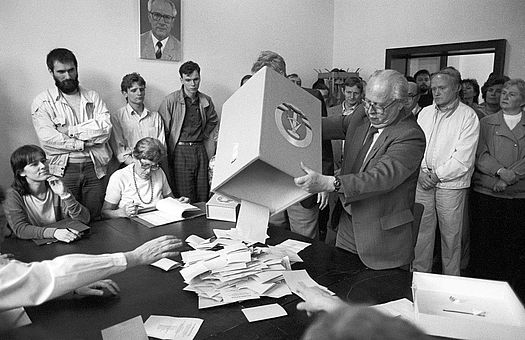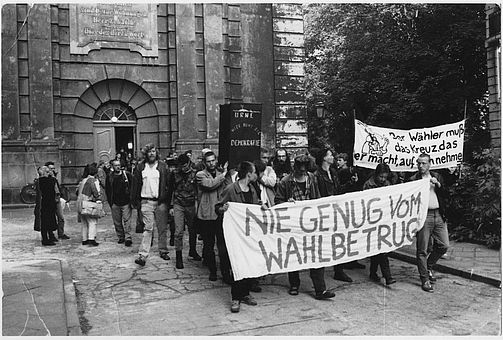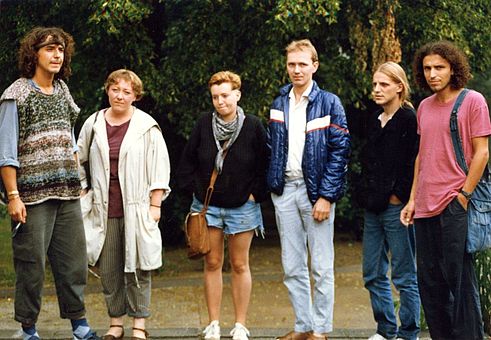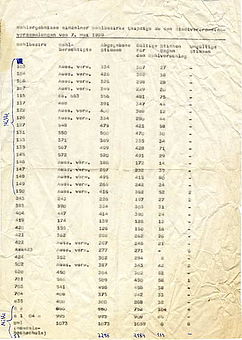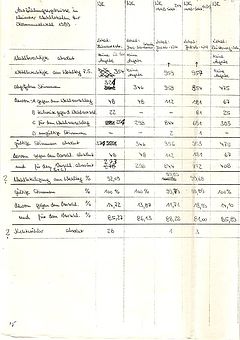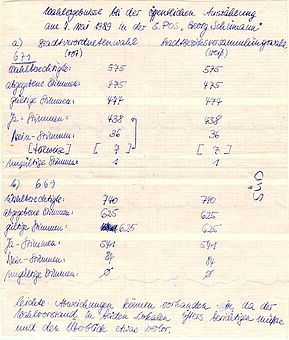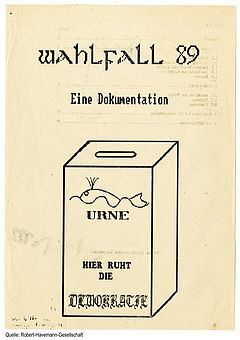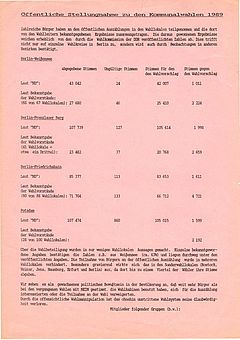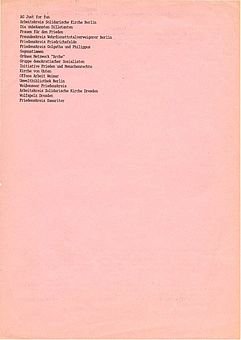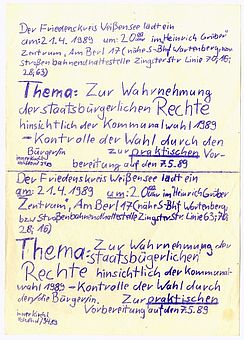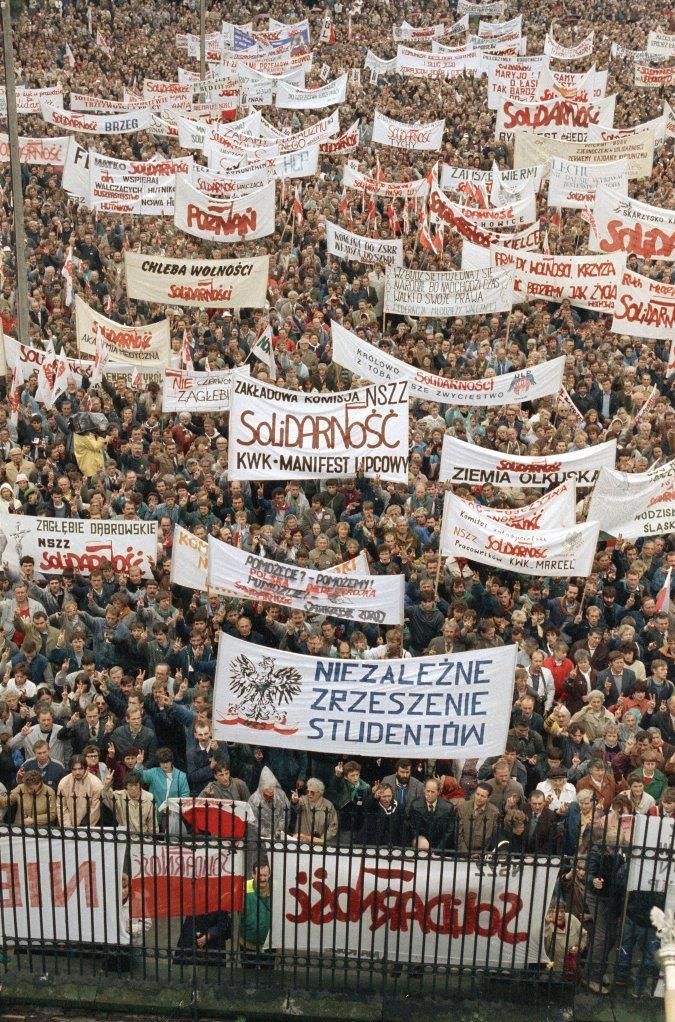
- Home >
- Awakening >
- First steps to revolution >
- Never enough electoral fraud
Ever since the installation of the communist dictatorship, free elections had been one of its opponents' central demands. There were no free elections in the GDR and no competition between political parties. The "leading role" of the Socialist Unity Party (SED) was anchored in the constitution. All the candidates for the government and parliament were placed on a single list. When casting their ballot, voters could only approve or reject this list as a whole. According to official statistics, around 99 percent of voters generally opted for the candidates on the list. Although the politicians on the "united list", as it was called, were actually elected by an overwhelming majority, many people suspected electoral fraud.
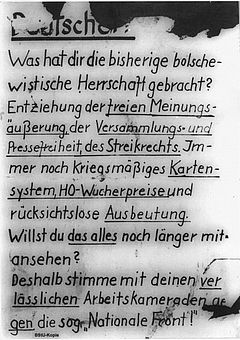
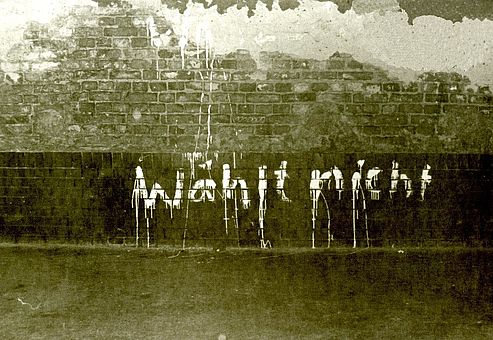
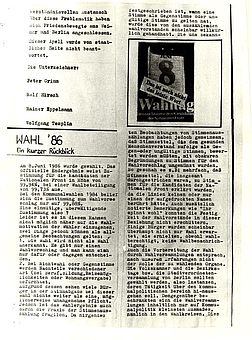
Local elections in 1989
Opposition activists wanted to prove this fraud at the local elections on 7 May 1989, by monitoring the ballot count. They prepared for this task for weeks and were able to make spot checks on the count. They compared this to the official final results, and proved that the authorities had manipulated the figures. The officially announced election results had been rigged. The elections at the heart of the GDR's official democracy were no more than a façade.
